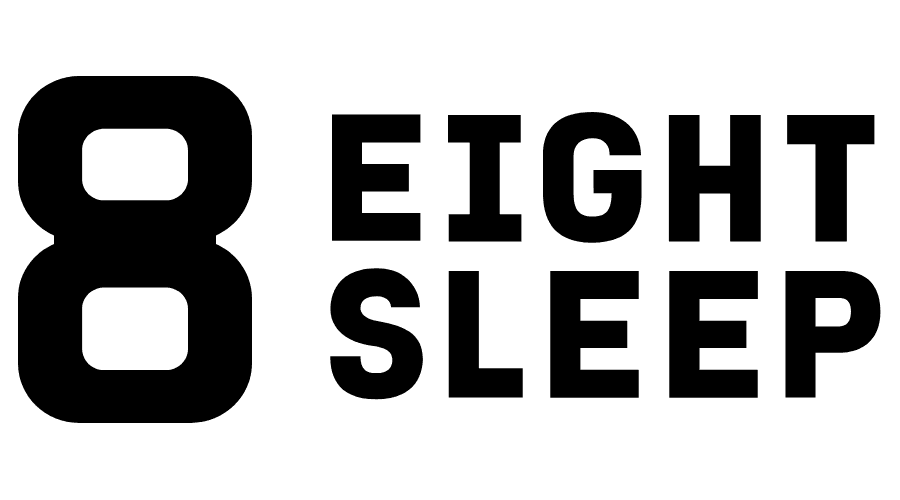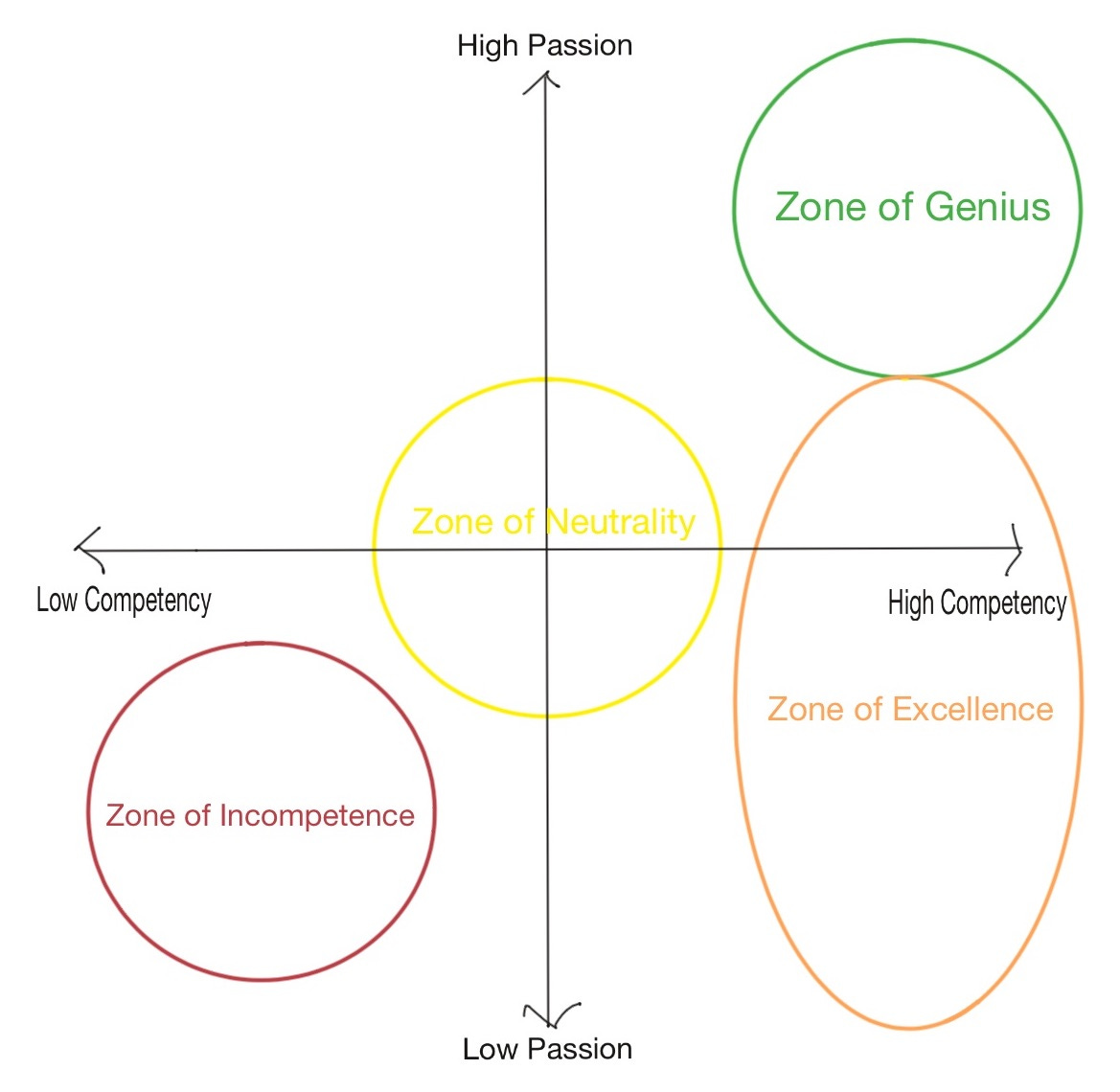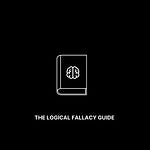Welcome to the 590 new members of the curiosity tribe who have joined us since Friday. Join the 42,681 others who are receiving high-signal, curiosity-inducing content every single week.
Today’s newsletter is brought to you by Eight Sleep!
Trust me…you can’t find and operate in your Zone of Genius without proper sleep. Thousands of the world’s greatest CEOs, investors, and operators—and this humble newsletter writer—rely on the Eight Sleep Pod Pro to power their performance. It has patented technology to help you sleep at the perfect temperature all night, which research has shown can make you fall asleep faster and sleep deeper—so you can wake up energized to attack the day. I love my Eight Sleep Pod Pro and know you will too.
Special Offer: For a limited time, Curiosity Chronicle subscribers can use the special link below to get $150 off on their first Eight Sleep purchase!
Today at a Glance:
Your Zone of Genius is where your interests, passions and skills align. Operating in it means you stop playing their games and start playing yours. It means you start playing games you are uniquely well-suited to win.
Finding and operating in your Zone of Genius is a direct path to a more fulfilling, productive, and successful career.
My simple framework is four steps: (1) Experiment & Collect, (2) Build Your Matrix, (3) Identify Your Zones, and (4) Execute.
Your Zone of Genius

“Everybody is a genius. But if you judge a fish by its ability to climb a tree, it will live its whole life believing that it is stupid.” — Unknown
A few weeks ago, I shared a thread—How to Win (without talent or luck)—that earned a lot of attention.
One of the most popular insights in the piece was the idea of operating in your Zone of Genius.

But I got a lot of questions about how to practically achieve that, so I decided to dive in deeper on the topic.
I first came across the concept of the Zone of Genius in an interview of Naval Ravikant, though have since been informed that the origin of the idea is Gay Hendricks and his book, The Genius Zone (which is now on my reading list!).
My perspectives and framework—which are shared in this newsletter—are the result of my own personal 10+ year struggle with finding and operating in my Zone of Genius. My hope is that this piece helps you find and operate in yours.
Background
What is a Zone of Genius?
Your Zone of Genius is roughly defined as where your interests, passions and skills align—it is your place of harmony. Operating in it means you stop playing their games and start playing yours. It means you start playing games you are uniquely well-suited to win.
Imagine Serena Williams playing on a grand stage in the finals at Wimbledon. She knows exactly what match she wants to play. She doesn’t want to play her opponent’s game—she wants to play her game. She wants to play the game that she is uniquely well-suited to win—the one that plays into her strengths and away from her weaknesses. She wants to operate within her Zone of Genius.
But let's get one thing straight: This concept isn’t just for the most elite among us (like Serena!). Everyone has a Zone of Genius!
"Genius" here is a relative term, not an absolute. It's not about being top 1% at some craft—it's about the unique space where your relative strengths are accentuated (and relative weaknesses masked).
Furthermore, everyone’s Zone of Genius is different and completely unique to them as an individual. The goal of a founder, startup, or organization, therefore, is to build a team with complementary—not conflicting—Zones of Genius. This is where 1+1=3!
Sounds great—but how do you identify your Zone of Genius and operate more frequently in it?
My simple framework is effectively 4 steps:
Experiment & Collect
Build Your Matrix
Identify Your Zones
Execute
Let's walk through each step...
Experiment & Collect
The notion that you should know what you want to do with your life by the time you graduate college is one of the greatest lies you've been told by the world.
You wouldn’t buy a car without a test drive, so why buy a career or life without one?
You have to experiment and collect data in order to make informed decisions.
Importantly, you should experiment wildly. Try different things. Test out different working styles. This doesn't mean skipping from job to job—you can experiment on nights, on weekends, etc.
One of the best ways to experiment and data collect is simply talking to as many different people as possible. Ask them about their work and path. Learn from the experiences of others. It’s an invaluable way to de-risk your own decision-making.
Additionally, the data collection should be both internal—your own perspectives—and external—the perspectives of others.
To collect data from those around you, ask about their experiences working with you:
What am I great at?
What am I bad at?
When do you perceive me as being in the flow?
When do you perceive me as being forced?
The goal from the experimentation and data collection is to build a wide base of information from which you can assess your own competencies and passions.
Experimentation and data collection is not a fixed, static process—it is dynamic and iterative. You should never really finish experimenting and collecting.
Remember: As you grow and change, your Zone of Genius may well do the same.
Build Your Matrix
The next step is to take all of the data collected from your experiments and build a skill map.
What is a skill map?
I like to imagine it as a sheet listing every possible skill and capability. For every single one, there is a spectrum from 0 (minimum competency) to 1 (maximum competency).
You can theoretically place yourself somewhere on that spectrum for each. This is your skill map—it tells you your competency level across a range of skills.
But in my view, competency is just one critical plane—passion is the other critical plane. So to visualize this, I like to think of it as a matrix:
With this matrix as a guide, you can place each skill in one of the four quadrants.
High Competency, High Passion
High Competency, Low Passion
Low Competency, High Passion
Low Competency, Low Passion
If you’re new to this, I would recommend literally writing the various skills in little bubbles on the matrix—it’s a productive exercise, and one that I have done several times over the last few years.
The matrix—both your current version and the progression over time—becomes your powerful visual tool to bring this entire concept to life.
Identify Your Zones
With the matrix in hand, you can start to identify your various zones, which were popularized as a concept by Gay Hendricks in his aforementioned book.
The 4 key zones to identify on your matrix:
Zone of Incompetence: you are bad at these things; outsource to others who are good at them.
Zone of Neutrality: you are ok at these things; outsource to others who are as good or better at them.
Zone of Excellence: you are excellent at these things, but you don’t love them. This is the danger zone. You will be asked—and tempted—to work here given your competency, but it can be a trap. Many people can have productive lives in this zone, but still lack the pure fulfillment found in the Zone of Genius.
Zone of Genius: you are excellent at these things and you love to do them.
Note 1: I was asked about the top-left quadrant by several commenters. The top-left quadrant (low competency, high passion) is what I think of as the “get better” quadrant. Your passion should allow you to work at that skill diligently to improve your competency.
Note 2: It is possible that high competency leads to high (or increasing) passion, but I would argue that you need to disaggregate being good at something from actual enjoyment and love of it. We all love affirmation, but ask yourself whether you would really love something even if everyone stopped telling you that you were good at it. That’s the key!
Execute
Ok, so you've identified your Zone of Genius. Now what?
By placing the various skills and capabilities within each zone, you've developed a clearer picture of where and how you should aim to spend your time. But that's just part of the battle...
You have to execute.
Let me start by saying that it’s an extreme luxury to have the opportunity to operate in your Zone of Genius 75% of the time—let alone 100% of the time. Few will ever be lucky enough to do this.
For most of us—myself included—the goal should be to maximize time spent in your Zone of Genius (and minimize time spent in the others), but 100% is probably a bit of a pipe dream.
Your Zone of Genius has a reality override that kicks in from time to time…
If you work in a company, the best approach is to have a clear, candid conversation with your teams and managers about your zones. If you have the matrix mapped out, bring it with you as a way to help them visualize your points.
Even better, encourage the full team to conduct a similar exercise—with everyone mapped, it becomes easier to piece the puzzle together.
If you're running into a wall—with a company or manager who fails to recognize your perspectives—it may be time for a change.
Let the market determine which companies survive by allowing for the free flow of talent to the places that allow employees to thrive.
If you work on your own, be honest with yourself about what daily activities fall in what zones. Be ruthless in outsourcing to maximize the time you spend in your Zone of Genius. Your results and performance will improve in line with your ability to execute.
Summary
Finding and operating in your Zone of Genius is a direct path to a more fulfilling, productive, and successful career. When you play your games—games you are uniquely well-suited to win—everything gets better.
My hope is that this piece—and the framework shared within—helps you find and operate in your Zone of Genius.
Wishing you all the best of luck on your respective journeys!
Sahil’s Job Board - Featured Opportunities
Metafy - Employee Experience Manager, Community Support Manager (NEW DROP!)
Launch House - Partnerships Associate, Growth Specialist (NEW DROP!)
Practice - Head of Marketing
Pathpoint - Sales Development Manager
Matter - Design Lead
Panther - Customer Delight Manager
SuperLayer - CFO, Founding PM
Free Agency - Sales Lead, Talent Agent for Tech
Maven - Marketing Lead
SmartAsset - Acquisition Manager, Paid Search
The full board can be found here!
We just placed a Talent Agent, Head of Community, Growth Lead, Swiss Army Knife, Account Exec, and several other roles in the last month. Results for featured roles have been awesome! If you are a high-growth company in finance or tech, you can use the “Post a Job” button to get your roles up on the board and featured in future Twitter and newsletter distributions.
That does it for today’s newsletter. Join the 42,500+ others who are receiving high-signal, curiosity-inducing content every single week! Until next time, stay curious, friends!
P.S. Here’s a behind-the-scenes photo I like from the first filming of the Where It Happens podcast (with Howard Lindzon!). Sign up to stay in the loop!


















Share this post